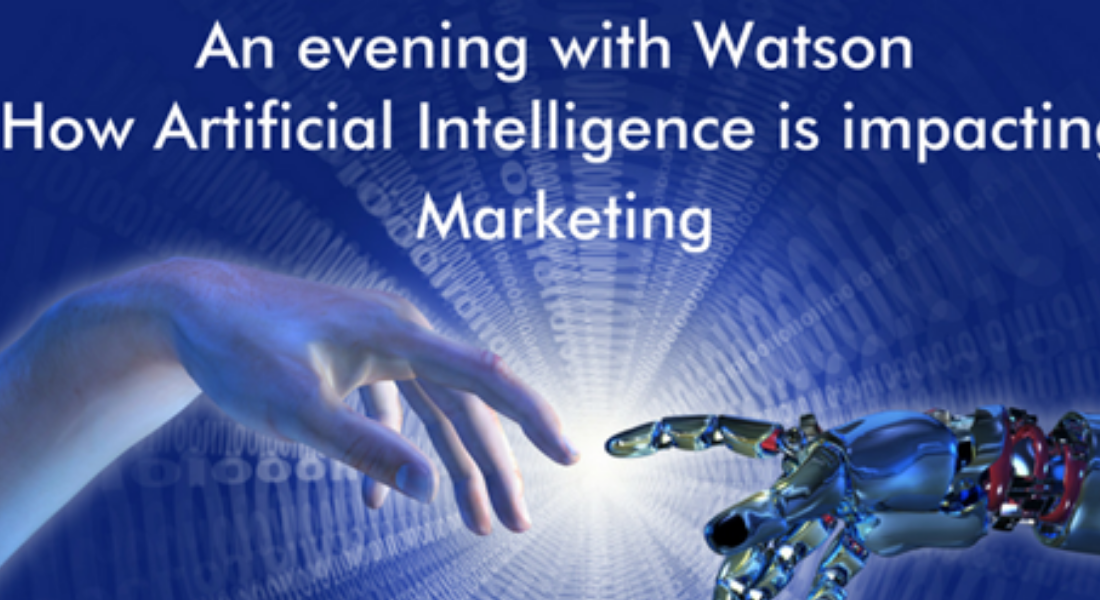Working in B2B tech PR requires you to be aware of all the major trends happening in technology – and how these could affect clients. Understanding the implications of Artificial Intelligence (AI), however, is challenging even for the techiest of people. Even with all the wealth of information and dialogue out there, opinions are divided on how AI will impact things such as security, jobs and specific business functions – from manufacturing to marketing.
To find out more, I attended a talk hosted by the Institute of Direct Marketing (IDM) in London, which was sponsored by our client APS Group. The speaker, Lisa Gilbert, CMO at IBM UK and Ireland, shared her thoughts on how IBM’s supercomputer Watson might impact the marketing industry. Here are some of the key points that were raised at the event.
How can you use Watson?
By combining AI and analytical software, IBM have created what is essentially a highly-sophisticated question answering machine. Pieces of Watson are already available for companies to use now for free. For example, it’s possible to use Watson as a language translator, tone analyser, visual recognition service and much more. It’s also possible for companies to rent different aspects of Watson that aren’t readily available on the web to help with a specific business task or problem.
How could it help your marketing strategy?
The best thing about Watson is its ability to quickly sift through mountains of data. At the moment, Watson can analyse billions of pages worth of data in under three seconds. And not just data that you might search on Google. According to IBM, 80% of online data is unstructured – think social media posts for example – so while normal computers can’t read it, Watson can.
Say you were attempting to bring a new product to market in the UK. In the space of a few seconds, Watson has the potential to tell you what products you were competing against; identify your target customers; tell you what they might be looking for in a product; how external factors such as the weather might affect your marketing campaign; what colours would work best according to sales in other similar products, and much more. Watson’s ability to process huge amounts of data means any research you need doing for a campaign can be done much faster.
But aren’t there risks?
Most of the debate around AI has focused on a fear that we’re starting to lose control of the machines designed to help us. This led to a host of questions at the IDM/ APS event, these included:
“Won’t Watson halve all jobs in most sectors?”
“How long until it can do everything and makes humans obsolete?”
“Could your competitors used AI to access your data?”
Well, to resolve many of those concerns, an ethics committee has been set up by tech giants Apple, IBM, Amazon, Microsoft and Facebook. With the big ‘job loss’ question looming, this partnership will also be formulating a best practice approach for AI technologies, and create an open platform to discuss its development.
There were a few questions that were left unanswered. In particular, it was pointed out that while it’s all well and good for tech companies to discuss best practice, what about the companies using and exploiting the potential of AI for themselves? How are we going to make sure all businesses think about the ethics of AI? With machine learning developing so quickly, it seems IBM is unsure how we should address a lot of these concerns.
Listening to IBM, however, it’s clear they believe AI will become deeply ingrained in businesses very quickly. How and in what ways? We’ll have to wait and see!
Share this:





